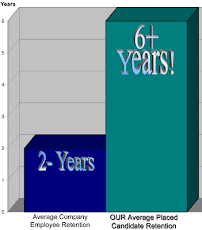Monday
Want to put Americans back to work? Insourcing for Job Growth
Insourcing - The Secret to Job Growth in America.
By ROBERT M. KIMMITT AND MATTHEW J. SLAUGHTER
The Labor Department reported on Friday that the U.S. unemployment rate is now 9.8%, as the economy added only 39,000 jobs in November. Since the start of the Great Recession, America has lost nearly 7.3 million private-sector jobs. Today's 108 million private-sector jobs are the same number America had in April 1999. And unemployment, Federal Reserve officials predicted last week, will likely remain at 9% through 2011.
Meanwhile, U.S. policy makers are fiercely divided over how to support job growth. The Fed's second round of quantitative easing triggered sharp criticism both at home and abroad, and fiscal prospects remain bleak, with little prospect for additional stimulus. So what is to be done if neither monetary nor fiscal policy will spur job creation?
Last month a Survey of Current Business report by the U.S. Bureau of Economic Analysis suggested—perhaps accidentally—a promising new approach. The report documented a dynamic group of companies that create high-paying American jobs based on significant capital investment and export prowess—precisely the kinds of jobs America desperately needs to build a sustainable recovery.
In 2008, these companies employed 5.6 million Americans, 4.7% of total private-sector employment. In the U.S. private sector that year, these companies accounted for 11.3% of capital investment ($187.5 billion), 14.3% of research and development ($40.5 billion), and 18.1% of goods exports ($232.4 billion). All these activities contribute to good-paying jobs. In 2008, total U.S. compensation at these companies was $408.5 billion—a per-worker average of $73,023. That's about one-third more than the average for all other U.S. workers.
So which companies are these? Ones that "insource"—that is, the U.S. operations of multinational firms based abroad. Insourcing companies now employ more than twice the number of Americans they employed in 1987. According to a recent survey by the Organization for International Investment, the chief financial officers of insourcing companies continue to see growth opportunities in America. Almost 50% plan to increase U.S. employment over the next 12 to 18 months, and just 22% plan to reduce it.
To boost the hiring prospects of insourcing companies (and of many others as well), policy makers should focus on three issues quite distinct from macroeconomic tools like quantitative easing and federal stimulus spending.
First, taxes. Insourcing CFOs reported to the Organization for International Investment that taxation is the single most important policy area that shapes their companies' investment decisions. In turn, their top concern is the U.S. corporate tax rate, which, at 35%, is one of the world's highest.
America's high corporate tax rate inhibits hiring and investment in all U.S. firms, big and small alike. All the recent proposals by prominent deficit-reduction panels have recommended cutting the statutory rate and simplifying the corporate tax code. Policy makers should act on these proposals as quickly as possible to reduce the uncertainty that is inhibiting businesses' hiring and investment.
Second, trade. The global production and distribution networks of insourcing companies foster lots of exports and related jobs. So does trade liberalization. The more U.S. policy makers enact free-trade agreements with other nations, the more insourcing companies will be able to expand their exports and related jobs. Insourcing companies owned by South Korean parents exported $10.5 billion in goods in 2008; this would likely grow if America could ratify the pending free trade agreement with South Korea.
Third, tone. A worrisome 72.2% of insourcing CFOs say that the environment for doing business in America deteriorated over the last year. Contributing to this deterioration were the "Buy American" provisions of the 2009 American Recovery and Reinvestment Act. This protectionist tone belies the reality that America today is in a new era of global competition to attract the dynamic operations of global companies.
Last week's news (from the OECD) that global cross-border investment flows fell again in 2010 only intensifies this competition. To meet it, America should set a more welcoming and optimistic tone. A good start would be an "open investment policy" statement from President Obama affirming America's commitment to promoting international investment.
Mr. Kimmitt, who served as deputy secretary of the Treasury from 2005-2009, is independent chairman of the Deloitte Center for Cross-Border Investment. Mr. Slaughter, who was a member of the council of economic advisers from 2005 to 2007, is an adviser to the Deloitte Center.
By ROBERT M. KIMMITT AND MATTHEW J. SLAUGHTER
The Labor Department reported on Friday that the U.S. unemployment rate is now 9.8%, as the economy added only 39,000 jobs in November. Since the start of the Great Recession, America has lost nearly 7.3 million private-sector jobs. Today's 108 million private-sector jobs are the same number America had in April 1999. And unemployment, Federal Reserve officials predicted last week, will likely remain at 9% through 2011.
Meanwhile, U.S. policy makers are fiercely divided over how to support job growth. The Fed's second round of quantitative easing triggered sharp criticism both at home and abroad, and fiscal prospects remain bleak, with little prospect for additional stimulus. So what is to be done if neither monetary nor fiscal policy will spur job creation?
Last month a Survey of Current Business report by the U.S. Bureau of Economic Analysis suggested—perhaps accidentally—a promising new approach. The report documented a dynamic group of companies that create high-paying American jobs based on significant capital investment and export prowess—precisely the kinds of jobs America desperately needs to build a sustainable recovery.
In 2008, these companies employed 5.6 million Americans, 4.7% of total private-sector employment. In the U.S. private sector that year, these companies accounted for 11.3% of capital investment ($187.5 billion), 14.3% of research and development ($40.5 billion), and 18.1% of goods exports ($232.4 billion). All these activities contribute to good-paying jobs. In 2008, total U.S. compensation at these companies was $408.5 billion—a per-worker average of $73,023. That's about one-third more than the average for all other U.S. workers.
So which companies are these? Ones that "insource"—that is, the U.S. operations of multinational firms based abroad. Insourcing companies now employ more than twice the number of Americans they employed in 1987. According to a recent survey by the Organization for International Investment, the chief financial officers of insourcing companies continue to see growth opportunities in America. Almost 50% plan to increase U.S. employment over the next 12 to 18 months, and just 22% plan to reduce it.
To boost the hiring prospects of insourcing companies (and of many others as well), policy makers should focus on three issues quite distinct from macroeconomic tools like quantitative easing and federal stimulus spending.
First, taxes. Insourcing CFOs reported to the Organization for International Investment that taxation is the single most important policy area that shapes their companies' investment decisions. In turn, their top concern is the U.S. corporate tax rate, which, at 35%, is one of the world's highest.
America's high corporate tax rate inhibits hiring and investment in all U.S. firms, big and small alike. All the recent proposals by prominent deficit-reduction panels have recommended cutting the statutory rate and simplifying the corporate tax code. Policy makers should act on these proposals as quickly as possible to reduce the uncertainty that is inhibiting businesses' hiring and investment.
Second, trade. The global production and distribution networks of insourcing companies foster lots of exports and related jobs. So does trade liberalization. The more U.S. policy makers enact free-trade agreements with other nations, the more insourcing companies will be able to expand their exports and related jobs. Insourcing companies owned by South Korean parents exported $10.5 billion in goods in 2008; this would likely grow if America could ratify the pending free trade agreement with South Korea.
Third, tone. A worrisome 72.2% of insourcing CFOs say that the environment for doing business in America deteriorated over the last year. Contributing to this deterioration were the "Buy American" provisions of the 2009 American Recovery and Reinvestment Act. This protectionist tone belies the reality that America today is in a new era of global competition to attract the dynamic operations of global companies.
Last week's news (from the OECD) that global cross-border investment flows fell again in 2010 only intensifies this competition. To meet it, America should set a more welcoming and optimistic tone. A good start would be an "open investment policy" statement from President Obama affirming America's commitment to promoting international investment.
Mr. Kimmitt, who served as deputy secretary of the Treasury from 2005-2009, is independent chairman of the Deloitte Center for Cross-Border Investment. Mr. Slaughter, who was a member of the council of economic advisers from 2005 to 2007, is an adviser to the Deloitte Center.
Subscribe to:
Post Comments (Atom)














1 comment:
The Labor Department reported on Friday that the U.S. unemployment rate is now 9.8%, as the economy added only 39,000 jobs in November. Since the start of the Great Recession, America has lost nearly 7.3 million private-sector jobs. Today's 108 million private-sector jobs are the same number America had in April 1999. And unemployment, Federal Reserve officials predicted l
Post a Comment